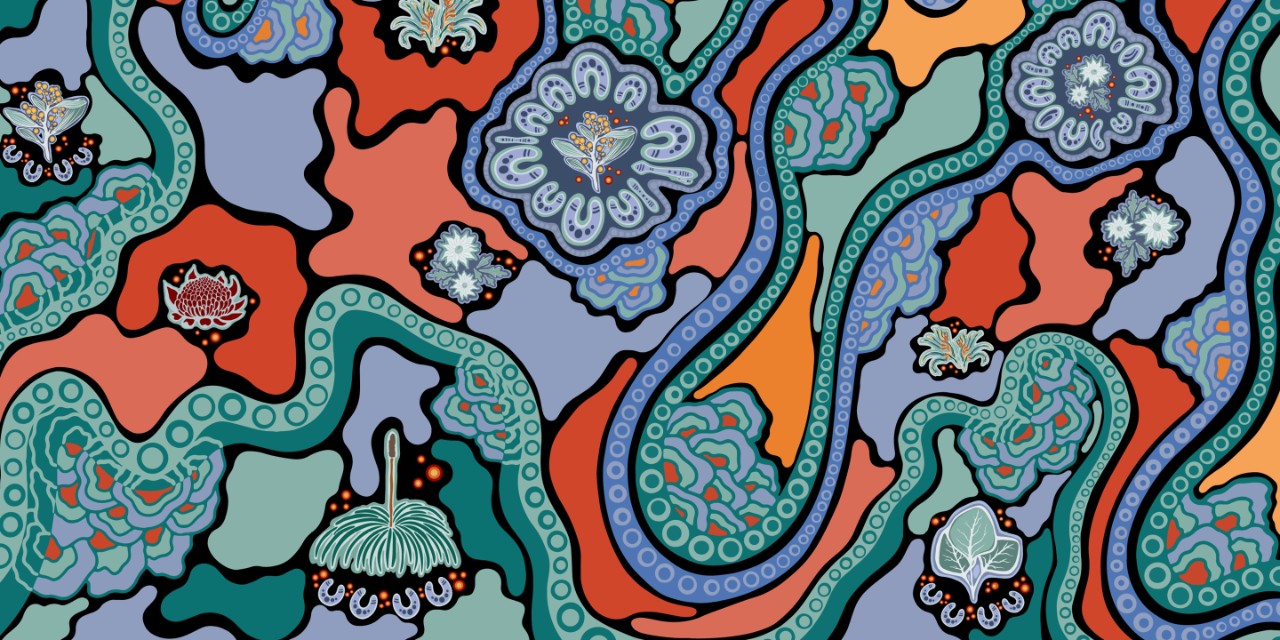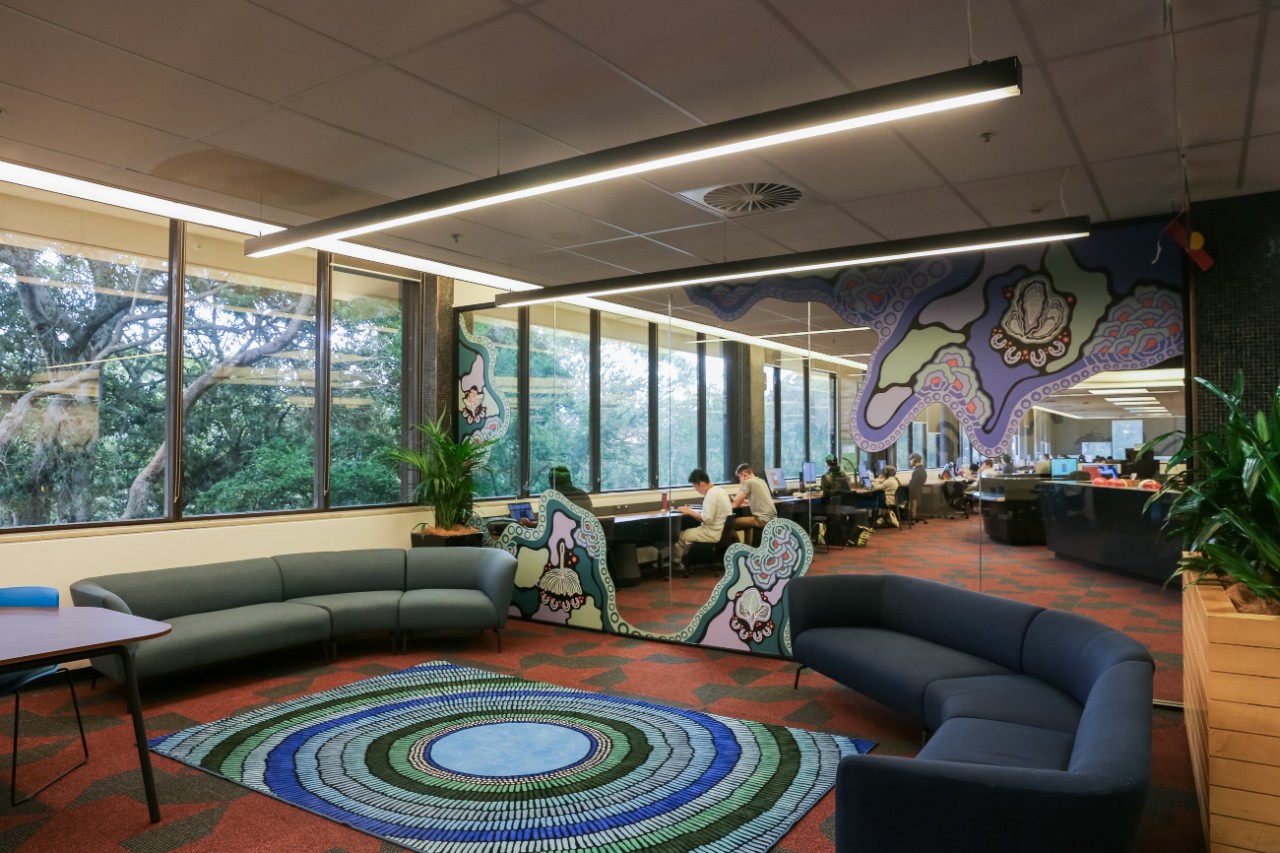First Nations Hub

Commitment
The Library is committed to celebrating and supporting Aboriginal and Torres Strait Islander staff, students and extended communities at the University. This extends to First Nations collections, truth-telling, ways of knowledge and engagement opportunities.
Acknowledgement of Country
The Library acknowledges the Gadigal people, the traditional custodians of the land on which most Library locations sit. We recognise the diversity and knowledge of the Aboriginal and Torres Strait Islander staff and students across all University campuses on the lands of the Gadigal, Gamaraygal, Dharug, Wangal, Darkinyung, Burramadagal, Dharawal, Gandangara, Gamilaraay, Barkindji, Bundjalung, Wiradjuri, Ngunawal, Gureng Gureng, and Gagadju peoples.
YILABARA (now) is an acknowledgment of Gadigal land, taking the form of a film. Made by Wiradjuri poet Jazz Money in collaboration with Gadigal man Cameron Davison and his grandfather Uncle Ray Davison the text of the film is in both Gadigal and English languages.

Cultural protocols
In 2022, we released the University of Sydney Library Aboriginal and Torres Strait Islander Cultural Protocols, which are intended as a set of principles and guidelines to enhance and embed culturally competent practice within an Australian academic library context.
Aboriginal and Torres Strait Islander student spaces
We have 2 pilot spaces for Aboriginal and Torres Strait Islander students that have been co-designed with First Nations students. These are culturally safe spaces where students can study, relax and enjoy events.
The bookings for both these spaces are mediated by Library Admin and the Indigenous Engagement Team. If you have any questions or issues regarding the spaces, please contact admin.library@sydney.edu.au.


Collections and resources
We have a wide variety of Aboriginal and Torres Strait Islander materials in our collections. We are unlearning our past collecting practices and centring Aboriginal and Torres Strait Islander voices and perspectives. The Library Cultural Collections Reference Group advises, facilitates consultation and assists our teams to embed culturally competent practice across its collections, services, and spaces.
Connect across campus
Connect with Aboriginal and Torres Strait Islander staff and students across the University doing amazing work for community.
First Nations Bookclub
A welcoming space for Aboriginal and Torres Strait Islander staff, students and community to meet twice a semester to share stories and yarn about books, movies, podcasts and music. Each session will have a particular theme.
Aboriginal and Torres Strait Islander Knowledges seminar series
First Nations staff and community members presented 6 seminars at the Library in 2018. These seminars focused on various aspects of traditional and contemporary First Nations culture.